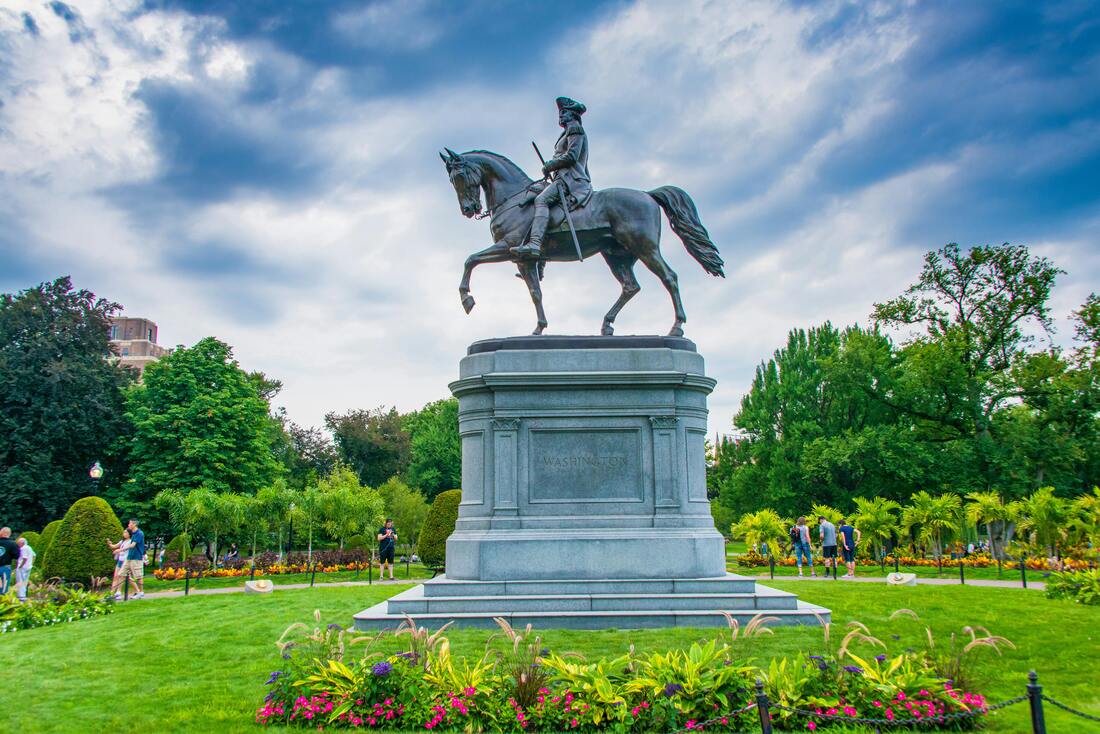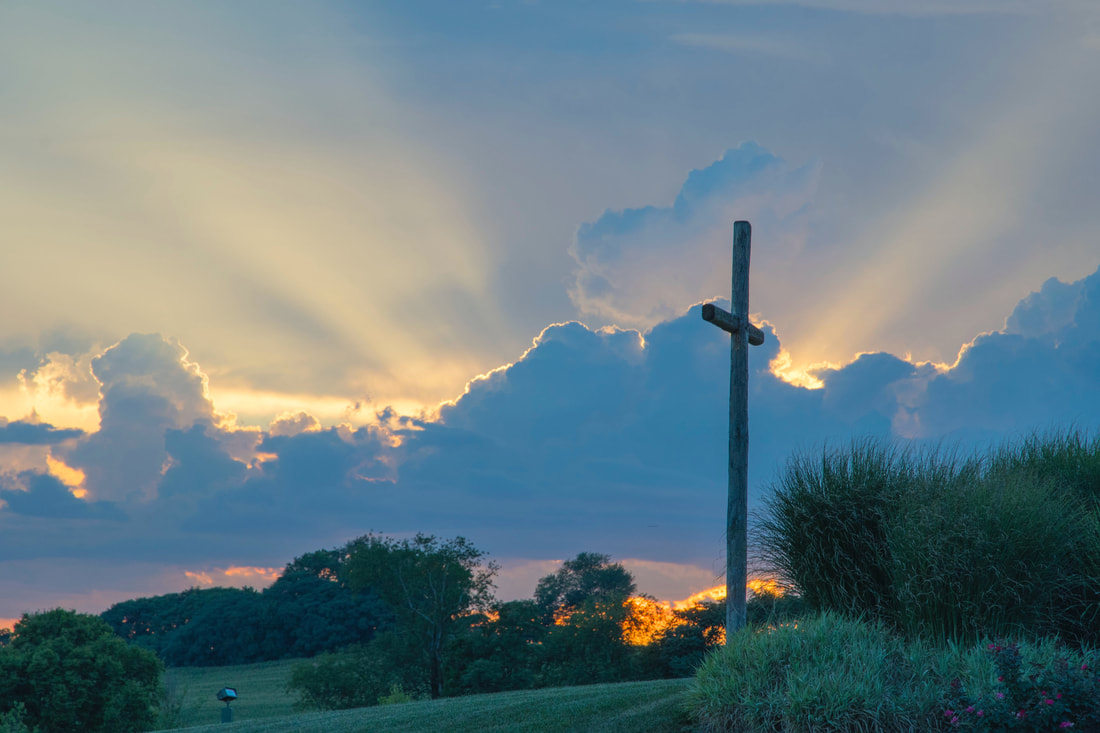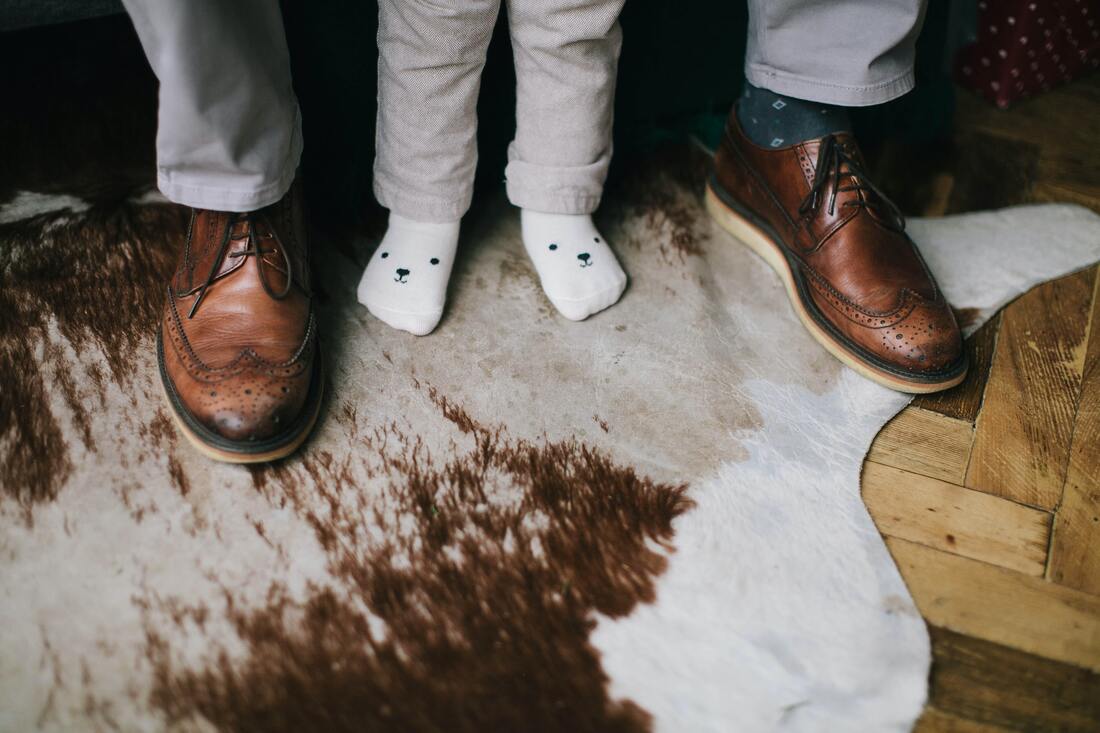|
God allows tests in our lives to prove our faith. Brian Simmons and his team of translators explain in a Genesis 22 footnote in The Passion Translation that "...The word 'tested' is derived etymologically from a word that means 'elevated banner' like a flag flying high above ship or a victory banner elevated over an army." The test that Abraham took made him great—so much so that he is called our Father of Faith. (Romans 4:11, 12) Abraham’s son, Isaac, was included in this test of faith. How so? Let's look at the story of God testing the faith of Abraham in Genesis 22. (I will be quoting from The Passion Translation.)
"God said, 'Please take your son, your only son, Isaac, whom I know you dearly love, and go to the land of Moriah. Offer him up to me as a burnt offering on one of the mountains I will show you.’" (Verse 2) Do not miss the significance of a burnt offering! It was a complete one in that everything was consumed by the fire. Only ashes remained after the burning. You could call this a sacrifice of total commitment. Also, it is interesting to note that Moriah means "chosen by Yahweh." Moriah comes from the root word meaning "sight" or "vision." This location is inside the present-day walls of Jerusalem, on the Temple Mount, where God would have Solomon build the Temple. Abraham and Isaac's journey to Mt. Moriah took three days. When the Mount was in view, Abraham told his servants to remain so that he and Isaac could go and "worship." Worship involves sacrifice. The wood for the offering was placed on Isaac's back. (This is a foreshadow of Christ carrying His cross.) Abraham carried the "knife and fire." This brings to mind God's requirement that each of us must carry the flame of God to truly worship Him. When Isaac questioned the whereabouts of the sacrificial lamb, Abraham responded, "My son, God will provide Himself the lamb for the burnt offering." (Genesis 22:8 - NKJV) Arriving at their destination, father and son must have had a terrifying moment. But Isaac allowed himself to be tied and laid on the altar of sacrifice. As Abraham took the knife in his hand to plunge it into his son, he heard the angel of the Lord call out to him. "Do not lay a hand on the boy or harm him, for now I know you are fully dedicated to me since you did not withhold your son, your beloved son, from me." (Verse 12) Not only were Abraham and Isaac confirming their faith in God, but they were allowing God to be "The Resurrected One." Obedience brings provision at the eleventh hour and deepens one’s capacity to obey. God came to Abraham with a ram for the burnt offering. He called the place where the sacrifice was given, "The Lord Will Provide" or "Jehovah Jireh." Not only did Abraham receive the provision for his sacrifice, but he also got a promise: "I will greatly bless you! I will make sure your seed becomes as numerous as the stars of heaven and as the sand of the seashore. Your offspring will take possession of the city gates of their enemies. Because you have obeyed me, the entire world will be blessed through your seed." (Verses 17, 18) We are Abraham's seed (Gal. 3:29), dear ones, and God continues to refine our faith. This means that we will have to go through tests that make no sense. He requires us to be obedient in following His instructions even when we do not know the details of what is involved. However, we can trust that the outcome will be glorious because Father God always provides for our needs and grows our faith in the process. Worshipers are to enforce the victory of Jesus Christ. Worship is warfare in that it chases away the darkness to create a path for Holy Spirit to join us. True worshipers usher in the Presence of the Lord. They celebrate who God is and what He is going to do before He does it. The sister of Lazarus, Mary, demonstrated the characteristics of extravagant worship when she anointed Jesus at her home in Bethany.
Six days before the Passover, Mary and Martha prepared a dinner for Jesus, his disciples, and other guests who knew that Jesus raised Lazarus from the dead. Mary was prepared to demonstrate her love, devotion, and thanks to Jesus through an act of complete submission and extravagance. She brought to the table an alabaster jar filled with about a pound of the purest nard. This extremely expensive perfume probably came from the root and spike of the nard plant found in northern India. In the presence of all these people, Mary broke her alabaster jar (probably carved from translucent gypsum) and poured the perfume on the feet of Jesus as she wiped them with her hair. (John 12:3) "Judas Iscariot, the disciple who would soon betray Him said, 'That perfume was worth a year's wages. It should have been sold and the money given to the poor.'" (John 12:5 - NLT) "Jesus replied, 'Leave her alone. She did this in preparation for my burial. You will always have the poor among you, but you will not always have me.'" (John 12:7-8 - NLT) The stories in the book of Matthew and Mark tell of a different occurrence of Jesus being worshiped in the home of Simon, the leper. They do not name the woman who poured the oil on the head of Jesus. The disciples grumbled when they observed the act of worship, not seeing it this way. Jesus said to them, "...She has done all that she could to honor me. I promise you that as this wonderful gospel spreads all over the world, the story of her lavish devotion to me will be mentioned in memory of her." (Mark 14:8-9 - TPT) Let's look at the components of Mary's extravagant act of worship. I think we can learn from them. Even before pouring out the expensive nard, Mary thought about what was going to happen to Jesus. Unlike the disciples who were in denial, she believed what Jesus told them—He was going to die. So, Mary planned a way to honor Jesus with her worship. Her worship was extremely costly and sacrificial. She was not ashamed to humble herself in front of Jesus and others as she went all out to demonstrate her love and devotion. Mary did not hold back but poured every drop of perfume from the jar onto Jesus. To those at the table with Jesus, Mary's act of worship was shocking! They were not thinking about the future and the truth that this might be their last opportunity to show their devotion to their Lord. As we get closer to the time when Jesus was crucified, we need to contemplate how we might worship our Savior. Our worship should be sacrificial, extravagant, and celebratory. He is worthy of everything we can give to Him! How blessed we are to have founding Fathers whose prayers helped establish America. Since our President’s Day celebration just passed, I thought it would be fitting to honor our first president, George Washington. Breaking Christian News did so by quoting from Eddie Hyatt's book, 1726: The Year that Defined America. Hyatt is an historian, Bible teacher, and revivalist who has tracked America's leaders and recorded their sayings as they pertain to God and the Bible. He floats the theory that the only reason the American troops were able to defeat the British was because of prayer. Washington was given a seemingly impossible task to challenge the British militia with his band of rag-tag soldiers. In his book, Hyatt says "Washington knew his only hope lay in a profound conviction in the hearts and daily actions of all his men that what they did, they did for God, and under God's protection." (Hyatt, pg. 114)
The American soldiers were united around the altar of prayer daily. In fact, Washington issued an order stating that each day would begin with prayer led by the officers. Again, I quote Hyatt: "Every soldier was to observe a punctual attendance of Divine services, to implore the blessing of Heaven upon the means for our safety and public defense." Apparently, Washington was insistent that every soldier attend daily prayer but also, they were forbidden the following: profanity, swearing, gambling, and drunkenness. His rational for this is written about by Hyatt: "We can have little hope of the blessing of Heaven on our arms if we insult Him by our impiety and folly. Every officer and man will endeavor so as to live and act as becomes a Christian soldier." When Washington and his men had their long, cold, tiring winter at Valley Forge, they were visited by Rev. Henry Muhlenberg, the pastor of a nearby Lutheran Church. Muhlenberg noted that Washington "admonished" his men "to fear God." He goes on: "This gentleman does not belong to the so-called world of society, for he respects God's Word, believes in the atonement through Christ, and bears himself in humility and gentleness. It appears that the Lord God has singularly, yea marvelously, preserved him from harm in the midst of countless peril...and hath hitherto graciously held him in His hand as His chosen vessel." (Hyatt, pg. 115) Visitors to Washington's camps confirmed that he made a habit of going into the woods for a time of prayer with the Almighty. It would be good for us to remember that not only did Washington and his troops pray, but when the Continental Congress opened, each of their sessions started with prayer. In addition, proclamations for national days of repentance, and prayer, and fasting were regularly issued. It is God alone who brought victory to the American Troops and brought about the surrender of British General Cornwallis on October 19, 1783. What an example we have to follow through George Washington! How has America fallen so far from the vision of our founding fathers? There are times, when I pray for others, that I point out the following: "You can tell the greatness of the call on their lives by the fierceness of the attack on them." This is true of America, and that God placed a call on our nation to be an example to all the world of what a godly nation should look like. Because of this call, the forces of darkness have targeted us for destruction, and waged a campaign to destroy us. We are in a battle for the very call on our lives. This battle can only be won as we return to God's call on our nation and our godly foundations. 1 Thessalonians 5:16-18 admonishes us, "Rejoice always, pray continually, give thanks in all circumstances; for this is God's will for you in Christ Jesus." If George Washington won the Revolutionary War through prayer, the Christian community can win the war against the darkness and be reestablished as a saved nation. Let us keep praying for our nation, as prayer is the weapon of our warfare that will transform the world. Prophecies abound in the Old Testament about Christ's birth, life, and death. One that stands out is Psalm 22, because it blends predictions of both of Messiah's comings. It reminds us of His birth and that the birth of Yeshua, our Savior, was a precursor to His death. It gives a detailed description of the horrific death of Jesus on the Cross. Footnotes in The Passion Translation of the Bible tell us that 33 prophecies from Psalm 22 were fulfilled when Jesus was on the Cross. I find this particularly fascinating as Jesus lived on the earth for 33 years. Finally, it prophecies the birth of sons and daughters of the Lord, spiritual seed who will serve the Lord.
As we contemplate the birth of our Savior and rejoice in HIs coming during this season, we must remember what the Lord sacrificed in the humility of coming to earth as a baby. At his birth He was wrapped in cloths like the lambs who would be sacrificed at the Temple. Afterward He was laid in a manger (a feeding trough). I wonder about the level of consciousness that Jesus had while lying in the manger. Was He contemplating what would happen to Him in 33 years? Jesus would be moved from the manger to a cross. Later He would remember His Father's care for Him as a baby. "Lord, you delivered me safely from my mother's womb. You are the one who cared for me since I was a baby. Since the day I was born, I've been placed in your custody. You've cradled me throughout my days. I've trusted in you, and you've always been my God. So don't leave me now; stay close to me! For trouble is all around me, and there's no one else to help me." (Psalm 22:9-11 - TPT) The description of the horrors perpetrated against Jesus are not for the faint of heart. Our minds cannot comprehend the torture He endured. Jesus cried out, "But look at me now; I am like a woeful worm, crushed, and I'm bleeding crimson. I don't even look like a man anymore. I've been abused, despised, and scorned by everyone..." (Psalm 22 6,7 - TPT) That peaceful manger scene we look at during the Christmas season would change as the devil plotted to destroy the Son of God through cruel and calculated means. There is hope revealed in the prophecy of Psalm 22. Between verses 21 and 22 the powers of darkness have been defeated and the glorious resurrection of Jesus took place. "Save me from all the power of the enemy, from this roaring lion raging against me and the power of his dark horde. I will praise your name before all my brothers; as my people (The Church) gather I will praise you in their midst." (Psalm 22:21, 22 - TPT) The Lord's desire for intimacy with the individuals He created was accomplished as He brought Jesus from the cradle to the Cross. We, His spiritual children, are included in the prophecy: "From the four corners of the earth, the people of the world will remember and return to the Lord. Every nation will come and worship Him. For the Lord is King of all, who takes charge of all the nations...They will come and worship this worthy King! His spiritual seed shall serve Him. Future generations will hear from us about the wonders of the Sovereign Lord. His generation yet to be born will glorify Him. And they will all declare, 'It is finished!'" (Psalm 22:27-31 - TPT) We are His spiritual seed! Our celebration of the birth of Christ must include the celebration of His death and resurrection. Our responsibility as His seed is to be rooted and established in His love and to grow in that love so that we can spread it throughout our communities. We must understand that the manger of His love will lead us to our own cross that brings with it death and resurrection life. During this season, may God pour out His abundant love on us so that we are filled with wonder and awe at the plan of God for our salvation. A recent letter from Mitch Glaser, President of Chosen People Ministries, touched my heart. Referring to the brutal attack on the Jews in Israel by Hamas, he expressed his desire to be thankful to God even though he is grieving deeply. I quote Mitch: "It is hard to believe we are entering the season of Thanksgiving. It seems so inappropriate to be thankful at this moment in time. I will admit I am having trouble thanking God in light of these last several weeks. I know the apostle Paul wrote, 'In everything give thanks; for this is God's will for you in Christ Jesus.'" (1 Thessalonians 5:18 - NKJ)
"These are my people," Mitch continues, "a nation called by the Sovereign and all-powerful God for His holy purposes." He asks some challenging questions: "How can we come to grips with what happened and be thankful? How can we keep ourselves from being consumed by hatred and a desire for vengeance? How can we be grateful during this season of Thanksgiving in light of these tragic events? The answers are all the more elusive because of the graphic nature of the crimes appearing so often on social media, the news, and websites replaying the horrors, not letting us forget...Yet, I know God wants me to be grateful—not for what happened, of course—but for His grace and mercy we find on the path of suffering." As I reflect on the raw truths shared by Mitch, I recall the wisdom that is shared by Elisabeth Elliot in her book, A Path Through Suffering. She explains that the meaning of suffering can only be understood in the context of The Cross. We must pick up our crosses and follow Jesus. (Luke 14:27) We must look to Him for the next grace that we need in life. We can stand on the promises of God. Elisabeth encourages us: "We have our Father's promise, linking the pain to an unimaginable glory: 'If we suffer, we shall also reign with Him.'" (2 Timothy 2:12) God desires for us to become more Christlike. Suffering was a landmark of Christ's life. The Psalmist writes, "Show me Your ways, Lord. Teach me your paths." (Psalm 25:4) Our time on earth is designed to help us know Christ more so that we grow up like Him. When we share in His sufferings, we increase in our understanding of Him and our intimacy with Him. Willingness to praise the Lord in our sufferings makes us Kingdom partners with Him so that we demonstrate His life and love to those around us. When we go back to Mitch's original questions about giving thanks while we suffer, we must look at our situations from both an earthly and heavenly perspective. Is it possible for us to look at suffering as a divine opportunity? Let us visit the foot of the Cross and remember the suffering of Jesus on our behalf. Here is the opening to thanksgiving. Thanksgiving and praise lead to worship. And, when worship is offered in our pain and suffering, it rises to the throne of God in heaven as sweet incense. Because it is offered sacrificially, this form of worship draws the Lord near to us. The intimacy we then have with Him is without comparison. Heaven is a place of peace and joy, so sacrificial worship can only take place on earth. Thus comes our opportunity! God understands our suffering. He sent His Son as a Redeemer. Somehow the Lord will redeem our trials and afflictions so that His glory falls. Like Mitch, I am grieved and overwhelmed with sorrow for the agony of the Jews in this hour. However, God has not left us without a remedy. We have the gift of prayer so that we can lay our burdens at His feet. He is the one from whom we draw breath. As our Shepherd, He restores our souls and leads us on paths of righteousness for His name sake...He is with us. His rod and staff comfort us. He prepares a table before us in the presence of our enemies...Surely goodness and love will follow us all the days of our lives, and we will dwell in the house of the Lord forever. (Psalm 23 – NIV) In just two weeks, the Jews will be celebrating their New Year, Rosh Hashanah. Central to their celebration is the reading of the story of Abraham and his willingness to sacrifice his son, Isaac, at the command of God. Because of his act of faith in God, Abraham has become known as The Father of Faith. He began to demonstrate faith when God first spoke to him at the age of 75. God said to him, "Go from your country, your people, and your father's household to the land I will show you. I will make you into a great nation, and I will bless you; I will make your name great, and you will be a blessing. I will bless those who bless you, and whoever curses you I will curse; and all people on earth will be blessed through you." (Genesis 12:2-3) Abram, as he was known then, put feet to his faith and set out for the Promised Land.
Abram had another encounter with God when he was 99 years old. God said to him, "As for me, this is my covenant with you. You will be the father of many nations. No longer will you be called Abram; your name will be Abraham, for I have made you a father of many nations." (Genesis 17:4-5) To seal the promise God was making, He required all males to be circumcised as a sign of this everlasting covenant. Faith was to become the key for all nations to be part of the family of God. That faith must be established through our belief that Jesus Christ is the Son of God and died for our sins. If we make this decision, the righteousness of Christ is given to us. Romans 4:9 tells us that "Faith was credited to Abraham as God's righteousness!" (TPT) Faith in God and righteousness go hand-in-hand. Romans 4:3, in The Passion Translation, explains this. "Because Abraham believed God's words, his faith transferred God's righteousness into his account." Romans 4 also makes it clear that this righteousness is available to every person on the face of the earth. Look at Romans 4:10-11. "How did he (Abraham) receive this gift of righteousness? Was he circumcised at the time God accepted him, or was he still uncircumcised? Clearly, he was an uncircumcised gentile when God said this of him! It was later that he received the external sign of circumcision as a seal to confirm that God had already transferred His righteousness to him by faith, while he was still uncircumcised." (TPT) God's promises to Abraham were ultimately fulfilled through Jesus Christ who is in Abraham's line. Notice that God did not select a perfect man in Abraham. We can see the mistakes that he made and sins that he committed. He learned through these and grew in faith. The ultimate test of his faith was when he was told to sacrifice Isaac, his only son. He traveled approximately 50 miles to Mount Moriah and had an abundance of time to reconsider what he was about to do. But Abraham demonstrated that he loved God more than he loved the promise. Through his commitment to follow God's command, he was rewarded with blessings that confirmed his faith in God. We can be assured that our faith in God will be tested. That is the only way for it to grow. God wants to increase His righteousness in our "accounts" through increasing our faith. Why else would He send his Son to earth to die? "God made Him who had no sin to be sin for us, so that in Him we might become the righteousness of God." (2 Corinthians 5:21) It seems to me that when we pass our tests, we get a double bonus: increased faith and righteousness. "A Haven in Time"—that is what the month of Elul is called. We entered into this sixth month on the Hebrew calendar on Thursday evening. Why is Elul called a haven? It is because our God, the God of Abraham, Isaac, and Jacob, appointed this time as one where His mercy and forgiveness are extended to us in a personal way. If we look back at the history of the children of Israel, we see that the prior two months (Tammuz and Av) are known for the sins committed against the Lord. Because of their sins of lust and unbelief, the Israelites built the golden calf and refused to enter the Promised Land. Elul is meant as a time for repentance and redemption.
Today, God reaches out to us even in the midst of our sin. His overwhelming desire for intimacy with us overrides any anger over our disobedience. During Elul, He extends the opportunity for us to prepare for the high holy days of the next month through repentance now. The Lord extends mercy in a very personal way by making Himself more accessible to us. The Jewish people say of Elul: "The King is in the field." God's desire for intimacy with us is so great that He leaves His heavenly dwelling to come to earth and make Himself accessible in the field of our lives. We have an entire month when the Lord is here to remind us of His loving kindness and love. For me, it is particularly significant that God picked the month of Elul to send the angel Gabriel to tell Mary about God's plan to use her to birth His son. "In the sixth month, God send the angel Gabriel to Nazareth, a town in Galilee, to a virgin pledged to be married to a man named Joseph, a descendant of David. The virgin's name was Mary...the angel said to her, 'Do not be afraid, Mary, you have found favor with God. You will be with child and give birth to a son, and you are to give him the name Jesus.'" (Luke 1:26-27, 30-31) "...So, the Holy One to be born will be called the Son of God." (Luke 1:35) During the month of Elul, God took His first step to put into motion His plan for His Son to come to earth to live in a tent of flesh for 33 years. John 1:14 describes what happened: "The Word became flesh and made His dwelling among us." The Passion Translation gives us a good visual of John 1:14. "And so the Living Expression became a man and lived among us! And we gazed upon the splendor of His glory, the glory of the One and Only who came from the Father overflowing with tender mercy and truth." God's desire has always been to dwell with us. Look back to Exodus 25. In this part of Scripture, the Lord instructs Moses to build Him a tabernacle. Verse 2 says, "...You are to receive the offering for Me from everyone whose heart prompts them to give." The purpose for the tabernacle is described in Verse 8. "Then have them make a sanctuary for Me, and I will dwell among them." It is hard to imagine such a loving God. The Lord made the ultimate sacrifice for us so that we could live with Him for eternity. "This is love: He loved us long before we loved Him. It was His love, not ours. He proved it by sending His Son to be the pleasing sacrificial offering to take away our sins." (1 John 4:10 - TPT) During Elul, God gives us an invitation to experience deeper measures of HIs love. It is so fitting that the name Elul is a Hebrew acronym, "Ani L'dodi V'dodi Li" which means "I am my beloved’s, and my beloved is mine." (Song of Solomon 6:3) Should we not respond positively to God's loving invitation for intimacy? Let us be sure that our hearts are clean, open, and prepared to experience Him in this haven in time. A recent visit to a salmon hatchery in Alaska gave me a new-found respect for the way these fish were designed. There are several varieties of salmon (King or Chinook, Sockeye, Coho, and Pink), each unique in their appearance. However, all of them have the same characteristic of being able to orient themselves toward their original home when it is time for them to spawn. God has built into them their own global positioning system. Scientists believe that salmon navigate through the earth's magnetic field similar to the way a compass operates. It takes a salmon about one year to imprint by learning the smells and chemical nature of their surroundings during the first year of their lives.
As young fish, salmon migrate to the ocean where they gain the majority of their body mass. In their feeding grounds they consume foods that are high in carotenoids, which is the pigment that is stored in their flesh and gives them the pink-orange color. After spending two to five years in the ocean, their homing instinct becomes strong, and they begin their journey back to the place where they were born. It is believed that in addition to using the earth's magnetic field, salmon are conscious of the day length, the sun's position, water salinity, and temperature gradients. They travel from June through August in order to spawn between August and November. Salmon return to the stream where they were born because they know it is a good place to spawn. They have the ability to swim against the current, and it is reported that they can jump as high as twelve feet. Their homing instinct is so strong that if they get off track, they die. If God designed salmon with such a homing instinct, can you imagine how He designed us as His children? Each of us has a God-given destiny that is meant to draw us into intimacy with Him. Acts 17:26-28 confirms the Lord's intentions for us. "From one man He made all the nations, that they should inhabit the whole earth; and He marked out their appointed times in history and the boundaries of their lands. God did this so that they would seek Him and perhaps reach out for Him and find Him, though He is not far from any one of us. For in Him we live and move and have our being. As some of your own poets have said, 'We are His offspring.'" Coming to know the Lord personally is like finding our way home. The salmon come home to spawn so that the life of their species continues, and then they die. We come home to have everlasting life with the Lord and to join all creation in worshiping Him. "For God so loved the world that He gave His only Son, that whoever believes in Him shall not perish but have eternal life." (John 3:16) The prophet Jeremiah describes the "GPS system" that is a part of God's people: "In those days, at that time...the people of Israel and the people of Judah together will go in tears to seek the Lord their God. They will ask the way to Zion and turn their faces toward it. They will come and bind themselves to the Lord in an everlasting covenant that will not be forgotten." (Jeremiah 50:4-5) Romans 1:19-20 describes the way God designed us. "In reality, the truth of God is known instinctively, for God has embedded this knowledge inside every human heart. Opposition to truth cannot be excused on the basis of ignorance, because from the creation of the world the invisible qualities of God's nature have been made visible, such as His eternal power and transcendence. He has made His wonderful attributes easily perceived for seeing the visible makes you understand the invisible. So, then, this leaves everyone without excuses." (TPT) May I encourage you to use your internal "GPS System" to increase your intimacy with the Lord? All of us have an amazing blessing to be able to have a personal relationship with The Creator and Sustainer of all life. The Lord wants to spend eternity with us and calls us to stay on track as we make our way on His path of life. Can we agree that God used King David to inspire several generations? He continues to touch generations through the Psalms that he has written. I wonder, however, if he had in mind saving the Psalms as an encouragement for his children and a legacy for generations to come. Although most of them demonstrate praise and worship, there are also those that talk about pilgrimage, petitioning God, or confessing a lament. They are a picture of David's relationship with God that shows us transparency and honesty. Psalm 139, for example, was written when David was contemplating God's love for him in the way he was made. He expressed contempt for God's enemies, and yet realized that he could have had sin in his own life. So, he invited God to search and know his heart. "...Test me and know my anxious thoughts. See if there is any offensive way in me and lead me in the way of everlasting." (Verses 23-24)
When David was coming to the end of his life he appointed his son, Solomon, to be king over Israel and to oversee the building of a temple for the Lord. He gave a charge to Solomon: "...Be strong, act like a man, and observe what the Lord your God requires: Walk in obedience to Him, and keep His decrees and commands, His laws and regulations, as written in the Law of Moses. Do this so that you may prosper in all you do and wherever you go and that the Lord may keep His promises to me: 'If your descendants watch how they live, and if they walk faithfully before me with all their hearts and souls, you will never fail to have a successor on the throne of Israel.'" (1 King 2:2-4) In David's desire for his son to succeed, he spoke words of advice directly to Solomon and left the Psalms for him to read. Because he asked God for wisdom, Solomon became the wisest man on earth; however, he had a soft spot that would become his undoing. 1 Kings 11 tells us that he loved many foreign women. "They were from nations about which the Lord had told the Israelites, 'You must not intermarry with them, because they will surely turn your hearts after their gods.' Nevertheless, Solomon held fast to them in love." (1 Kings 11:2) The Bible reports, "So Solomon did evil in the eyes of the Lord; he did not follow the Lord completely as David his father had done." (1 Kings 11:6) Solomon's behavior was so offensive that God raised up adversaries against him so that the end of his life was fraught with battles. When he died, his son, Rehoboam, was appointed king. What kind of legacy did this father leave for his son? There is the written legacy through the books of Proverbs, Ecclesiastes, and Song of Solomon, but his actions did not agree with his written words. His legacy was one of idol worship; the demonstration of his love for God was not obvious to Rehoboam. When he began his reign over Israel, the Kingdom was torn from his hands because he followed the wrong path of leadership. Rehoboam lost the loyalty of ten tribes of Israel. Idol worship became the trademark of his day. We could continue to look down the family line of David to see how each successive son behaved. Needless-to-say, the legacy of a father can impact generations for good or bad. Our prayer for our fathers and men who have influence on subsequent generations should be for them to develop a heart like God's. The apostle Paul told the Thessalonians, "For you know that we dealt with each of you as a father deals with his own children, encouraging, comforting, and urging you to live lives worthy of God, who calls you into His Kingdom and glory." (1 Thessalonians 2:11-12) Paul's heart toward those he visited was like God's heart of love toward us. All of us can develop this kind of heart as we connect with the Lord in greater intimacy with Him to leave a legacy of love. The one who created the heavens and the earth existed before there was creation. Genesis 1:1 used the Hebrew word Elohim which translates God, Mighty Creator, Omnipotent Power. With His breath He made everything from nothing, spoke order into chaos, and light into darkness. Elohim is the plural form of El that gives recognition to the truth that He is a Triune God—Father, Son, and Holy Spirit. On the sixth day "God created man in His own image..." (Genesis 1:27) His desire was and is to fill our lives with blessings. Psalm 102:27 tells us about the infinity of God. "But you remain the same, and your years will never end."
After destroying life on earth because of its wickedness, God started again with Noah and his family and demonstrated that He is the God who keeps covenant with His people. Nations were birthed from Noah's sons, Shem, Ham, and Japheth. From Shem's family came Abram and another covenant with God. God said, "I will make you into a great nation, and I will bless you; I will make your name great, and you will be a blessing. I will bless those who bless you, and whoever curses you I will curse; and all peoples on the earth will be blessed through you." (Genesis 12:2-3) Abram was blessed with abundant provision through God. To broaden Abram's understanding of Elohim, God said to him, "Do not be afraid Abram. I am your shield, your very great reward." (Genesis 15:1) The covenant God made with Abram (who He renamed Abraham, meaning "Father of a multitude") was sealed with a sign. Every male was to be a sign of the covenant through circumcision. In the generations to come, all male children would be circumcised on the eighth day. (Genesis 17:12) Eight is the number of new beginnings. The story of Abraham and his relationship with God was verbally shared through the generations. However, when the children of Israel were detained as slaves in Egypt, much of what had been handed down from generation to generation was forgotten. After 430 years of oppression and slavery, God appointed Moses to lead them to the Promised Land and used the events of their journey as a way to reintroduce His character. This took place during the second month on the Hebrew calendar. This month has two names: Iyar and Ziv, which means radiance. We are in the first week of this month and can learn from the Israelite journey. Since this month is linked with light it is time for us to ask God for revelation and to radiate God's glory as we learn more about Him. As we look back at the events of this month, we can see that God's desire is for greater intimacy with His children. One of ways that we can accomplish this is through getting to know His names. With multiple names, we have multiple ways to relate to Him. Worship leader Paul Wilbur wrote a song called "The Diamond Turns." He asks the question: "Who is like You Oh Lord among gods? Who can worship as You shine? Who could even know in just a single gaze all the glory of Your face?" God is like a diamond with multiple facets. He is radiant; His light is blinding! Every facet of the Lord is unique and meant to help us in our journey on earth. Again, let's look back at the children of Israel and see how they were developing a new level of relationship with God as they traveled. They saw that God would fight for them as He opened the Red Sea. In the Song of Moses they sang, "The Lord is a warrior." (Exodus 15:3) Then they learned that God is Jehovah Rapha (The God who Heals) when he purified the bitter waters of Marah. God led them as a shepherd so that they became familiar with His name Yahweh Rohi. As they grumbled about the lack of food, God provided manna for sustenance and called Himself Jehovah Jaira (The Lord Will Provide). When they went to battle against the Amalekites, the Lord fought with Joshua and the troops and helped Moses hold up his hands in victory through the battle. Moses built an altar to His name, Jehovah Nissi. (The Lord is My Banner) With God everything is personal. May I suggest that we investigate some of the names of God during this month of radiance. As we get to know Him more intimately, we will radiate HIs light and glory. |
Joan E. MathiasCategories
All
Archives
July 2024
|










 RSS Feed
RSS Feed